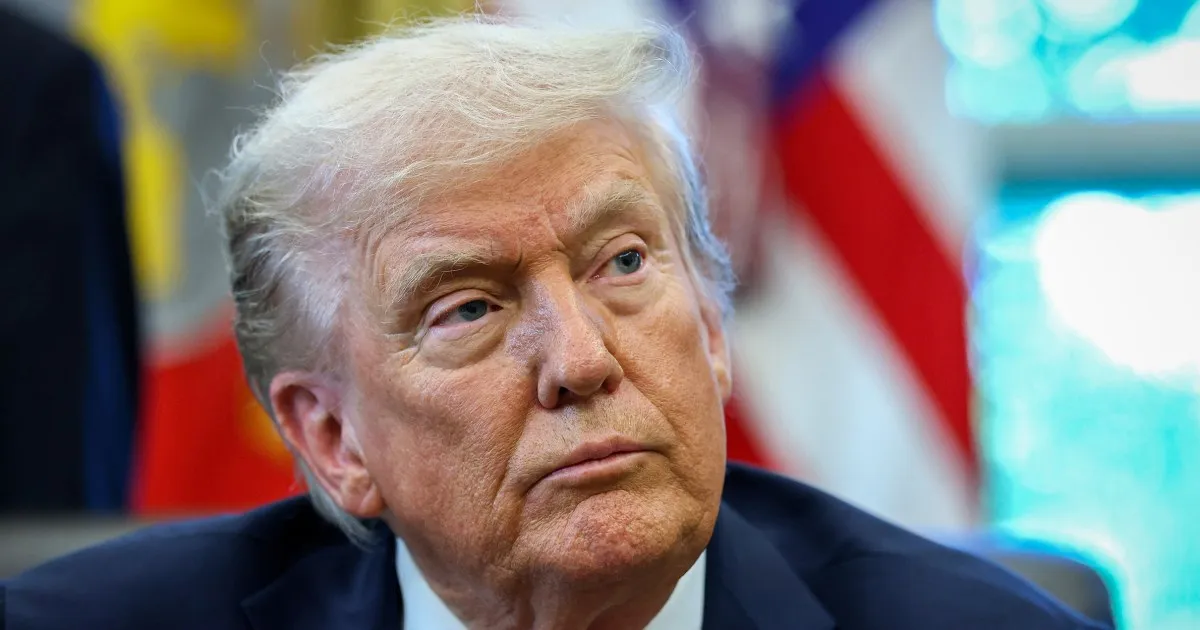
In recent days, White House officials have engaged in increasingly serious discussions regarding President Donald Trump potentially invoking the Insurrection Act. This 19th-century law grants the president the authority to deploy active-duty troops within the United States for law enforcement purposes. According to five individuals familiar with the conversations, the discussions have gained momentum, highlighting the administration's ongoing concerns about law enforcement and public safety.
These discussions emerge as President Trump has expressed intentions to deploy National Guard troops in several major cities, including Los Angeles, Chicago, and Portland, Oregon. The president argues that these troops are necessary to combat rising crime rates and to protect Immigration and Customs Enforcement (ICE) officials from ongoing protests. Critics, however, assert that the Trump administration is exaggerating the challenges in these cities, raising questions about the legitimacy of deploying military forces domestically.
While a decision to invoke the Insurrection Act is not anticipated to be imminent, its invocation would signify a significant escalation in the administration's approach to law enforcement. Currently, the National Guard operates in limited support roles, as active-duty military personnel are prohibited from engaging in civilian law enforcement, including searches and arrests. The Insurrection Act, however, provides the president with the necessary authority to deploy troops for such purposes.
Trump's plans to utilize the National Guard have faced legal challenges. A federal judge in Oregon recently ruled against the president's attempt to send guard members to Portland. In response, Trump indicated that he would consider invoking the Insurrection Act “if it was necessary,” emphasizing that he would act decisively if lives were at risk and if legal obstacles arose.
Internal discussions regarding the Insurrection Act have fluctuated since Trump resumed office in January. Recently, the focus has shifted from merely debating whether to invoke the act to exploring the operational and legal frameworks for its implementation. Administration officials are reportedly drafting legal defenses and considering various scenarios for invoking the act. However, a broad consensus among Trump's aides suggests that all other options will be thoroughly explored before taking such a drastic step.
White House spokesperson Abigail Jackson stated that the Trump administration is dedicated to restoring law and order in cities plagued by violence, attributing the unrest to what they describe as "Democrat mismanagement." Jackson emphasized that the administration will work diligently to protect federal assets and ensure the safety of American cities.
The Insurrection Act provides the president with considerable discretion regarding its invocation. It may be enacted at the request of a state or when the president determines that conditions such as “unlawful obstructions,” “rebellion,” or “insurrection” impede law enforcement. Historically, the act has been invoked by three presidents during the Civil Rights era to protect activists and enforce court orders related to desegregation. The last significant invocation occurred in 1992 at the request of California’s governor during the Los Angeles riots.
Current governors of Oregon and Illinois oppose the deployment of troops to their states, asserting that there are no riots and local authorities are not defying court orders. The White House anticipates that any potential invocation of the act would face immediate legal challenges, likely culminating in a Supreme Court review.
Last month, a federal judge ruled that the deployment of active-duty troops to Los Angeles was illegal under the Posse Comitatus Act, which restricts the military's involvement in domestic law enforcement. Following this ruling, discussions regarding the Insurrection Act were revived within the administration. However, advisors cautioned Trump that invoking the act might not withstand Supreme Court scrutiny, which could jeopardize his previous legal victories.
As the situation evolves, Trump's legal team is focused on identifying a viable legal pathway to support the president's vision for law enforcement. The administration remains committed to exploring all legal avenues to implement Trump's policies effectively.
During his first term, Trump considered invoking the Insurrection Act amid the protests following George Floyd’s death in 2020 but ultimately decided against it. This past experience weighs heavily on his current deliberations about deploying troops. Stephen Miller, one of Trump’s deputy chiefs of staff, has actively supported invoking the act and has been integral to the ongoing discussions.
Administration officials have indicated that invoking the Insurrection Act may be considered if local law enforcement fails to protect ICE and federal agents. However, concerns persist that this action could result in active-duty troops confronting American citizens, escalating tensions further.
In recent statements, Trump has increasingly characterized protests in cities like Portland and Chicago as instances of "insurrection," claiming that pushback against ICE operations constitutes organized violence against the federal government. This rhetoric underlines the administration's framing of the situation and its justification for potential military intervention.